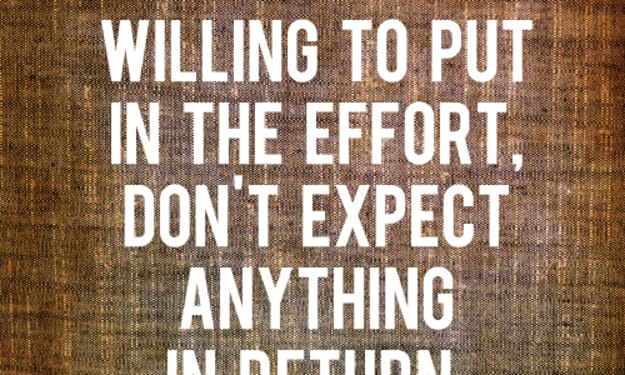Social Skills—More Than Just Your Grandmother's Expectations
What are the most important things we can teach?

Social Skills—More Than Just Your Grandmother’s Expectations
As an educator, some of the things that I learned pretty early on were that students will rise to the level of expectations you set for them, and that we have an obligation to do our very best to raise not only scholars, but citizens who can function in, and ultimately contribute to society to make it a better place.
Part of that has also been, whether formalized in a curriculum, or just in day to day interactions, to teach students effective social skills. Now, in an age when students tend to communicate mainly in 160 characters or less most of the time, skills involving appropriate social interaction have never been more important to teach. This point could not have been driven home better today on a field trip, where I served as an additional chaperone while taking adolescents out into public.
Let me preface what I am about to say by saying I was not in charge, but rather simply asked to come along as adult support, which somewhat limited my role as role model and teacher. Another challenge I have had this year in particular is that, while I have been in education for over 25 years, I am currently teaching half time at two schools, which means I am never full-time anywhere this year, and thus not all the students know who I am. Just a couple challenges to disclose going in.
Now, having had my own classes for many many years, and having taken students on many-a-field trip, I know what is involved in pulling off a successful field trip. You have to have goals and objectives for the students, so that learning is taking place, and you have to have expectations for behavior and class management, much like you would do to run a successful classroom where learning is happening. When those two things are after-thoughts, often chaos ensues, leaving the adults panting at the end as if they had just run a road race that they did not bother to train for. Today was such a day.
I won’t get into the whole purpose behind the field trip because it is irrelevant to the discussion. I will just tell you some of the things that I observed. The absence of appropriate social skills, in my opinion, is the responsibility, first and foremost of the educator. We can complain about students all we wish, but if they are not taught what is expected, provided reinforcement in the form of front–loaded positive and negative consequences, we, as educators, have not set the stage for what we desire in our student’s behavior.
Social Skill Expectation No. 1: Appropriate Talking & Respect
Today, we took the students on a tour, guided by our teachers. As the teachers spoke to students, I noticed students continuing to talk, ignoring the fact that the teacher was talking, and missing both information and instructions. This is problematic, in my opinion, for several reasons. One: just like in the classroom, when students are off-task and disengaged, they miss any opportunity for learning. Two: the students' off- task, disruptive behavior is a disruption to the educational process for any of the other students who are distracted, or can’t hear because of the disruptive student or students. Three- the teacher, themselves has voluntarily given their authority away when they don’t set up expectations that prevent this from happening on the front end. Basically, when students are not front-loaded with expectations with regard to behavior, what we are saying as educators is, “It’s really all right to act however you like.”
Social Skill Expectation No. 2: Appropriate Walking and Physical Interaction
Adolescents are awkward by their very nature. I see it every day walking through the halls of two middle schools. The move through the hall, amoeba-like with not a direct path, but rather an all over the place—you had better get out of my way because I am not in control of my own body pattern. I know this because I am constantly ducking and dodging during class change to avoid being ran over by some pre-teen that thinks it is a good idea to walk backwards, conversing with friends and flailing about.
Take this behavior out of the contained setting of a middle school building, and you have students wandering forward with little conscious thought to the fact that there are other people around them, trying to travel in opposite directions, who do have a keen awareness of their surroundings. Try to cross the street at a cross-walk with some of these same students, and they appears seriously unaware that when the signal says STOP, that means the oncoming cars GO, and that they will likely be run over along with their ignorance is bliss mentality that so many of them seem to have. I know this, because I had to yell loudly, only to get a third of the crowd to stop, wait, and allow the oncoming traffic to move.
But what, educationally can we do? There is only so much we can do at school.
I believe we, as educators, have an obligation to not only raise students who can pass a standardized test and get into college, if that is their goal, I believe we, as educators have a responsibility to teach students the skills they require to become successful, effective members of their school community, as well as the community outside of the four walls of the school building.
This involves setting high but reasonable expectations for behavior, both in the classroom, and outside of the classroom. It takes time and it takes effort to set expectations, share them, model them and stop instruction to review them as necessary. If we say, as educators, we don’t have time to do this with all of our other responsibilities, we do both ourselves, and our students a dis-service. We do our students a dis-service by not teaching students the skills they need to be successful both in the academic setting and beyond. We do ourselves a dis-service because when we don’t have expectations for student behavior, teaching becomes a difficult, if not an impossible task dealing with many students, rather than the gift to our world it was meant to be.
This involves having consequences for students, both positive and negative at our disposal, in the classroom, just as it is in real life. As I explain to my students: in life, generally speaking, when you work hard and do good things, good things follow. In life, however, when you make poor choices, poor choices often have real life consequences. This involves going back to Education 101 and Psychology 101 and having some good old-fashioned positive reinforcement. It also means having some consequences, so that students know what to expect if they meet expectations, and when they fail to meet expectations. Each needs to be delivered with consistency and fidelity in order for the system to work.
It finally involves solid “you can count on” support from your school leaders. As students need to know what to expect from you, it is extremely helpful to know what you as an educator can expect, in terms of support from your school leadership, when it is time to call on them for behavior support. It helps you to communicate your expectations as well as school-wide expectations to your students. It is not a deal breaker if there is not crystal-clear communication with your school leadership, because I believe, as an experienced educator, or one who is less experienced, with the support of their colleagues, you can accomplish anything you set your mind to.
At the end of the day, I believe, as educators, we need to ask ourselves: are we going to wish later that we had taught them just a little more math, or just a little more science, or are we going to be glad that we taught them to be responsible, reflective, caring members of society? We do have that much influence, if we’d only use it.
About the Creator
Mike Lefko
A 26 year educator, taught at the elementary, middle school and high school levels. Served as a school leader in public, private and charter schools. Aspire to teach aspiring teachers at the undergraduate level and conduct research.






Comments
There are no comments for this story
Be the first to respond and start the conversation.